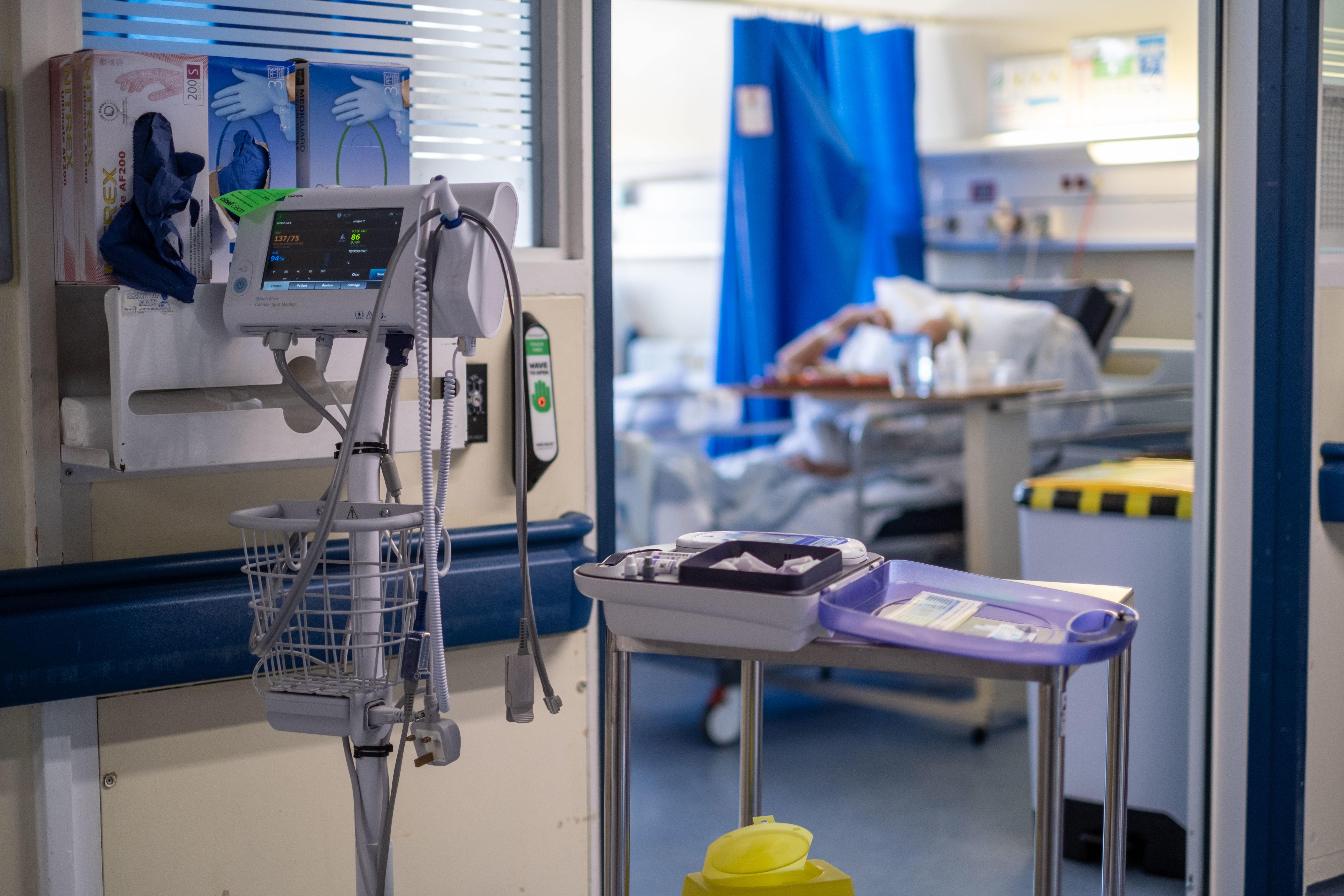NHS waiting lists force Britons to save up to pay for private healthcare, says report
Public now expect to have to save £200 a year due to spiriling NHS waiting lists

Your support helps us to tell the story
From reproductive rights to climate change to Big Tech, The Independent is on the ground when the story is developing. Whether it's investigating the financials of Elon Musk's pro-Trump PAC or producing our latest documentary, 'The A Word', which shines a light on the American women fighting for reproductive rights, we know how important it is to parse out the facts from the messaging.
At such a critical moment in US history, we need reporters on the ground. Your donation allows us to keep sending journalists to speak to both sides of the story.
The Independent is trusted by Americans across the entire political spectrum. And unlike many other quality news outlets, we choose not to lock Americans out of our reporting and analysis with paywalls. We believe quality journalism should be available to everyone, paid for by those who can afford it.
Your support makes all the difference.NHS waiting lists mean most people in the UK now expect to have to spend money on private healthcare for routine services, new research has found.
For the first time an annual budget of £200 has been included in the minimum income standard produced by Loughborough University and the Joseph Rowntree Foundtion (JRF).
Charity JRF, which funds the research, says its shows the public feel they can longer count on the NHS, and warn for the millions who don’t reach the minimum income standard “no spare cash to pay for treatment and little prospect of accessing necessary treatment before their conditions deteriorate.”
The news comes as the NHS’ waiting list hit 7.62 million treatments with 6.39 million patients waiting for care.
The research calculates a minimum income standard for living by adding up the costs of goods and services that the publicbelieve are needed to participate in society.
Peter Matejic, chief analyst at JRF, said: “In previous years it would have been unthinkable that cash to pay for health treatments would be necessary for a minimum standard of living. But, this research shows that the public feel they can no longer count on the NHS to provide a universal service that’s free at the point of delivery because some NHS services are now so difficult to access.”
He said the reality is that many families don’t have enough to reach this minimum standard of living and so cannot set aside money that is now considered necessary to avoid long waiting lists.
According to the report a single person needs to earn £28,000 a year to reach a minimum acceptable standard of living in 2024 while a couple with 2 children need to earn £69,400 a year between them.
However many people and families’ income means they cannot meet the MIS and would need hundreds more a week to hit this. This includes single adults, couple with children and couple with no children all who recieve out of work benefits.
Researchers held focus groups and participants involved in the study said accessing healthcare appointments was challenging and that languising on NHS waiting lists can prevent people from working as well as affecting their well being.
Participants gave examples such as needing to pay for physiotherapy for which the NHS has a waiting list of 33,000 for adults and counselling services. It is estimated the NHS has a waiting list of at least 1.6 million waiting for mental health services, whoever this doesn’t include talking therapies.
On woman said: “Whether it is mental or physical, you need to be able to have the choice to not go with the NHS and see yourself on a waiting list for years and years. You want to just be able to get the help that you need as soon as possible. So, you need the little budget to put towards that.”
Another said: “Physical, mental [poor health], it can potentially, for example, stop you from working … So if you need to get back to work 39 and you need some sessions on your back to get you there, then you have got to do that if it is necessary.”
Figures show a single age working adult would need £323 a week in 2024, excluding rent, to meet the MIS - up from £226 in 2020. A long parent with two children would need £647 a week and a couple with two children £811. Pensioners would need £414.
Professor Abigail Davis, who leads the MIS research at Loughborough University, said: “Over the past 16 years, MIS has set out a clear vision of what people in the UK think everyone needs to live with dignity. This is about meeting those basic needs, but it’s also about being able to take part in the world, not feeling excluded or on the edge of society.”
“And yet meeting a minimum acceptable standard of living continues to be a real challenge for so many households. As this latest research has highlighted, the lack of investment in public services over the past decade has made meeting this standard even more difficult, as costs have shifted from the state to individuals.”
This article was updated on 5 September to reflected updated figures from the Jospeh Rowntree Foundation on the amount a person would need to earn to hit the minimum acceptable living standard.
Join our commenting forum
Join thought-provoking conversations, follow other Independent readers and see their replies
Comments